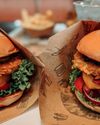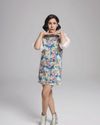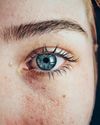The health of your teeth remains steeped in controversy but are dental caries really a disease of choice or a modern affliction? Beyond oral hygiene and trips to the dentist, is there something more you can do to restore the health of your teeth?

Able to survive fire and the grave, your teeth are unique, identifying you like a fingerprint. Like the rings of a tree, they’re also a time capsule of information about your diet and lifestyle, reveals Debbie Guatelli-Steinberg in her 2016 book What Teeth Reveal About Human Evolution. Your pearly whites may contribute to a great smile, the shape of your face and the pronunciation of speech, but their most important function is to tear apart and grind down food for further breakdown and digestion in the stomach.
This frontline role in the digestive process also makes your teeth vulnerable. “Teeth are the only parts of our skeleton that interact directly with our environments,” Guatelli-Steinberg states. “A less well-appreciated fact is that, as parts of our anatomy, teeth are affected indirectly by changes occurring elsewhere in our bodies.”
To help protect them — against food, drink, microbes and other things in our mouths — our teeth have a tough enamel layer, an inbuilt, natural crown as such, that covers and protects the softer dentine structure beneath. Built to last a lifetime and the hardest substance in the human body, tooth enamel is 96 per cent mineral, primarily hydroxyapatite, a crystalline calcium phosphate.
Yet, as a society, our teeth are in bad shape, with health experts reporting a global epidemic of dental problems. Over half the world’s population is affected by severe tooth decay (caused by the interaction of bacteria and sugar on tooth enamel) and gum disease, according to a 2013 study in The Journal of Dental Research.
A 2015 government report into oral health in Australia found that 30 per cent of Australians aged 25–44 have untreated tooth decay; 55 per cent of six-year-old children had experienced decay in baby teeth while 19 per cent of those 65 and over had no natural teeth left.
Diese Geschichte stammt aus der Issue#174-Ausgabe von WellBeing.
Starten Sie Ihre 7-tägige kostenlose Testversion von Magzter GOLD, um auf Tausende kuratierte Premium-Storys sowie über 8.000 Zeitschriften und Zeitungen zuzugreifen.
Bereits Abonnent ? Anmelden
Diese Geschichte stammt aus der Issue#174-Ausgabe von WellBeing.
Starten Sie Ihre 7-tägige kostenlose Testversion von Magzter GOLD, um auf Tausende kuratierte Premium-Storys sowie über 8.000 Zeitschriften und Zeitungen zuzugreifen.
Bereits Abonnent? Anmelden

YOGA FOR IMPERFECTION
Life is messy and we all make mistakes, but by embracing imperfection, we can begin to accept all parts of ourselves.

Creating the foundations of ritualist self-care
As a busy mum of a three-year-old and expecting another baby, finding time for self-care often feels like a luxury.

Are you doom spending?
If \"doom spending\" has become your go-to for coping with stress, you could be making withdrawals from not just your bank account, but your health too.

THE POWER OF music
Most of us enjoy music. But science shows music is central to being human and its effect on us is far more astonishing and impactful than we realise. Music is fundamental to life.

SYNTHETIC FOODS
Synthetic, or genetically modified, fake meats and the like attempt to mimic real meat in both looks, taste and texture. But how much do we really know about the production process and how do they affect the environment and our bodies?

Embracing the power of nature
Menopause is more than just a biological change, it represents a significant life stage that can present numerous challenges - from hot flushes and mood swings to fatigue and sleepless nights.

Jan Fran
From a young age, Jan Fran's deep curiosity and keen interest in social issues sparked her journey into the world of journalism. As an accomplished journalist, media commentator and broadcaster, Fran's passion for storytelling has always been driven by a desire to explore, question and shed light on the world around her.

Helping teen girls thrive
Statistics reveal that many more teen girls are struggling with mental health issues. What's going on with them? More importantly, what can we do to help them flourish?

Your ageing eyes
Your eyes work hard for you every waking minute. It is no surprise that how your eyes age will be determined by how you protect them. Eating the right foods can go along way towards ensuring that your eyes stay healthy for a lifetime.

The bottom line
During the Couid pandemic, we were shocked to see people fighting in supermarkets over toilet paper and to see empty shelves that had once held roll after roll. The reasons behind the run for toilet paper during this time reflect the unique place that it holds in our psyche and are deeply rooted in our history.